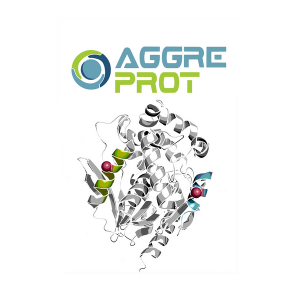New Web Server Aids Research into Neurodegenerative Diseases
Protein aggregation is a complex biological process linked to various devastating human diseases, including Alzheimer’s and Parkinson’s. Accurate prediction of protein aggregation propensity is crucial for developing effective treatments and prevention strategies. To address this challenge, researchers from the International Clinical Research Centre and Masaryk University (MU), in collaboration with IT4Innovations at VSB – Technical University of Ostrava, have launched AggreProt, a novel web server designed to predict protein aggregation.

The user-friendly web server is now freely available to researchers worldwide, empowering them to identify aggregation-prone regions in proteins and advance the understanding of misfolding diseases. The server is built on a pioneering computational method detailed in a recent article published in the premier journal Nucleic Acids Research of the Oxford Press, ” AggreProt : a web server for predicting protein aggregation propensity”.
One of the lead authors of the publication, Jan Martinovic from IT4Innovations National Supercomputing Center (VSB-TUO) says: “This innovative tool has the potential to help researchers better understand protein aggregation and design new mutations to prevent aggregation-linked processes.” By understanding and controlling protein aggregation through molecular engineering, we can create more stable, effective, and versatile proteins. This not only improves existing applications but also opens new possibilities for using proteins in various fields, ultimately benefiting human health, technological advancement, and environmental sustainability.
“With AggreProt, researchers can now accelerate their discoveries and move closer to developing effective treatments for debilitating neurodegenerative diseases,” adds Joan Planas-Iglesias from the Loschmidt Laboratories of Masaryk University, the International Clinical Research Centre of St. Anne’s University Hospital in Brno, and the Faculty of Medicine of MU. The team is also currently verifying experimental designs of proteins with improved solubility within the project LX22NPO5107, National Institute for Neurology Research, European Union – Next Generation EU.

Availability:
- AggreProt web server: https://loschmidt.chemi.muni.cz/aggreprot/
- Publication:
https://academic.oup.com/nar/advance-article/doi/10.1093/nar/gkae420/7683054 - Sister publication (experimental validation):
https://www.biorxiv.org/content/10.1101/2024.03.06.583680v1




